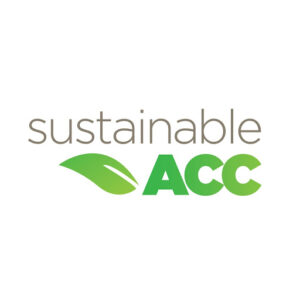ACC offers many ways for students, faculty, and staff to get involved in sustainable initiatives on and off campus. Check out the ways you can reduce your impact on the environment:
- Read our Sustainability Welcome Guide!
- Check out ACC’s Environmental Programs & Courses and apply for Environmental Jobs.
- Join your campus Green Team to volunteer at Zero Waste events, stay up-to-date on sustainability initiatives, and take part in sustainability projects and activities at your campus.
- Sign up to receive our quarterly Sustainability Newsletter. Check out the latest version here!
- Opt for Sustainable Transportation, including free public transportation, carpool and car share promotions, electric vehicle charging, and more.
- Volunteer with a local sustainable organization from our Green Volunteering List or with ACC’s Office of Energy and Sustainability.
- View ACC’s Sustainability Dashboards for current energy and water consumption and solar energy production.
- Apply to work with the Office of Energy and Sustainability as a Sustainability Steward. When positions are available, they will be posted on the college’s Workday site.
Apply for an Eco Conference Grant
ACC’s Office of Energy and Sustainability funds a number of student, staff, and faculty registrations and associated travel to several sustainability conferences each year. Past conferences include the Association for the Advancement of Sustainability in Higher Education (AASHE) and Texas Regional Alliance for Campus Sustainability (TRACS). Applicants must be current students, staff, or faculty. Grant recipients must apply and are scored by an ACC panel.
Eco Conference Grant opportunities will be posted on this site when they are available during the Fall and Spring Semesters.

Gardens
ACC appreciates urban agriculture and promotes environmental stewardship and campus community bonds by converting on-campus, underutilized and neglected parcels into productive learning gardens. ACC campus gardens are maintained by ACC faculty, staff, and students.
In August 2018, the U.S. Department of Agriculture Natural Resources Conservation Service awarded ACC a grant to establish Monarch Butterfly Migration Corridor Gardens on four campuses – Eastview, Elgin, Hays, and Round Rock. Through these gardens, ACC provides learning experiences in natural resource conservation and attracts and maintains butterflies by strategically locating gardens within the butterfly’s migration path. The Office of Energy and Sustainability also funded Monarch Butterfly Garden refreshers at Cypress Creek, Highland, and Northridge campuses.
Garden Features
Vegetables/Herbs

These are plants with edible leaves or fruits. Growing your own food not only tastes better, it may also help improve overall health and nutrition by decreasing exposure to pesticides and pollution related to food production. Plus, growing your own food can cut costs on groceries!
Perennial/Bulbs

Plants that live two or more years and often regrow each season in their native habitats. They create extensive root systems that help stabilize soil, prevent erosion, and resist drought.
Native/Adapted

These plants are well-suited for the growing conditions, either because they exist in the region naturally (native) or because they can thrive in the natural conditions without threatening native species (adapted).
Cacti/Succulents

These are drought-resistant plants that store water in their leaves and stems. Their tough skin or spines provide natural protection from most pests and predators and they are almost maintenance free!


